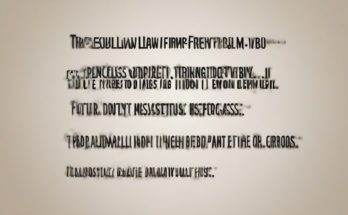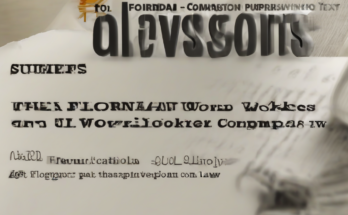Navigating the Complexities of Family Law in Las Vegas: A Comprehensive Guide
Las Vegas, a city known for its vibrant entertainment scene, also faces a significant volume of family law cases. The unique dynamics of a city attracting individuals from diverse backgrounds and lifestyles contribute to a wide range of legal situations requiring expert guidance. This comprehensive guide delves into the intricacies of family law in Las Vegas, providing valuable insights into various aspects of this specialized area of law.
Divorce in Las Vegas
Divorce proceedings in Nevada, and specifically in Las Vegas, are governed by state law. Understanding the specific requirements and processes is crucial for a smooth and efficient resolution. Key aspects include:
- Residency Requirements: Nevada requires a minimum residency period before filing for divorce. Understanding these requirements is critical to ensure eligibility.
- Grounds for Divorce: Nevada is a “no-fault” divorce state, meaning that irreconcilable differences are sufficient grounds for dissolving a marriage. This simplifies the process compared to states with fault-based divorce systems.
- Division of Property: Nevada is a community property state. This means that assets acquired during the marriage are generally divided equally between the spouses. However, exceptions exist, and understanding the nuances of property division is vital.
- Spousal Support (Alimony): The court may award spousal support to one spouse based on factors such as the length of the marriage, earning capacity, and needs of each party. Negotiating or litigating spousal support requires careful consideration of individual circumstances.
- Child Custody and Support: In cases involving children, the court prioritizes the best interests of the child. Determining custody arrangements (legal and physical), visitation schedules, and child support obligations is often a complex process.
- High-Asset Divorces: Las Vegas’ affluent population frequently involves high-asset divorces requiring specialized expertise in valuing complex assets, such as businesses, investments, and real estate.
Child Custody and Support in Las Vegas
Child custody and support cases are often the most emotionally charged aspects of family law. Understanding the legal framework governing these matters is critical for parents seeking a fair and equitable outcome. Key considerations include:
- Best Interests of the Child: Nevada courts prioritize the best interests of the child in all custody decisions. This involves considering factors such as the child’s physical and emotional well-being, the stability of the home environment, and the relationship between the child and each parent.
- Legal Custody vs. Physical Custody: Legal custody refers to the right to make major decisions regarding the child’s upbringing (education, healthcare, religion). Physical custody refers to where the child resides. These can be awarded jointly or solely to one parent.
- Visitation Schedules: Courts create visitation schedules that aim to balance parental involvement while ensuring the child’s well-being. These schedules can be highly individualized depending on the circumstances.
- Child Support Calculations: Nevada uses a child support guideline to calculate the amount of support one parent owes the other. Factors considered include the parents’ income and the number of children.
- Modification of Orders: Child custody and support orders can be modified if there is a significant change in circumstances, such as a change in income or the child’s needs.
Domestic Violence in Las Vegas
Domestic violence is a serious issue with significant legal ramifications. Understanding the legal protections available to victims is crucial. Key aspects include:
- Protection Orders: Victims of domestic violence can seek protection orders from the court to prevent further abuse. These orders can restrict contact between the abuser and the victim.
- Criminal Charges: Domestic violence can result in criminal charges, including misdemeanor or felony offenses. These charges can lead to significant penalties, including jail time and fines.
- Civil Remedies: Victims can also pursue civil remedies, such as seeking compensation for medical expenses and emotional distress caused by the abuse.
Paternity Cases in Las Vegas
Establishing paternity is crucial for determining child support and custody rights. Legal processes are in place to determine parentage conclusively. Key aspects include:
- DNA Testing: DNA testing is often used to establish paternity definitively. Courts will generally order DNA testing if there is a question about parentage.
- Legal Paternity Establishment: Once paternity is established, a court order will legally recognize the father’s rights and responsibilities toward the child.
- Child Support Obligations: Once paternity is established, the father will typically be obligated to pay child support.
Adoption in Las Vegas
Adoption proceedings in Nevada are governed by detailed legal requirements designed to ensure the well-being of children. Key aspects include:
- Types of Adoption: Nevada recognizes various types of adoption, including infant adoption, adoption of older children, and stepparent adoption.
- Home Study: Prospective adoptive parents typically undergo a home study to ensure they can provide a safe and nurturing environment for the child.
- Legal Requirements: Strict requirements must be met to finalize the adoption process, ensuring the best interests of the child are upheld.
Prenuptial Agreements in Las Vegas
Prenuptial agreements, also known as premarital agreements, are contracts signed by couples before marriage to outline how assets and property will be divided in the event of divorce or death. Key aspects include:
- Negotiation and Drafting: It is crucial to have legal counsel during the negotiation and drafting of a prenuptial agreement to ensure its validity and enforceability.
- Disclosure of Assets: Full disclosure of assets is essential to the validity of a prenuptial agreement. Failure to disclose assets can lead to challenges to the agreement’s enforceability.
- Enforceability: Courts generally uphold prenuptial agreements if they are fairly negotiated and signed voluntarily. However, there are circumstances under which a court may refuse to enforce a prenuptial agreement.
Grandparent’s Rights in Las Vegas
In certain circumstances, grandparents may seek visitation rights to their grandchildren. Nevada law provides a framework for addressing these situations. Key aspects include:
- Showing Harm to Child: Grandparents generally need to demonstrate that denying visitation would harm the child’s best interests.
- Parent’s Rights: Parents have fundamental rights regarding their children, and courts generally respect those rights unless there is evidence of harm to the child.
- Court Proceedings: Grandparents seeking visitation must typically file a court petition and participate in legal proceedings.
Choosing a Family Law Attorney in Las Vegas
Selecting the right family law attorney is crucial for navigating the complexities of family law matters. Several factors should be considered:
- Experience and Expertise: Choose an attorney with significant experience in family law and expertise in the specific area of law relevant to your case.
- Reputation and Client Reviews: Research the attorney’s reputation and read client reviews to get an idea of their professionalism and effectiveness.
- Communication and Accessibility: Ensure that the attorney communicates clearly and is readily available to address your questions and concerns.
- Fees and Payment Plans: Discuss the attorney’s fees and payment options upfront to ensure you understand the financial implications of hiring them.
Conclusion
(Note: Conclusion is omitted as per the prompt instructions.)



